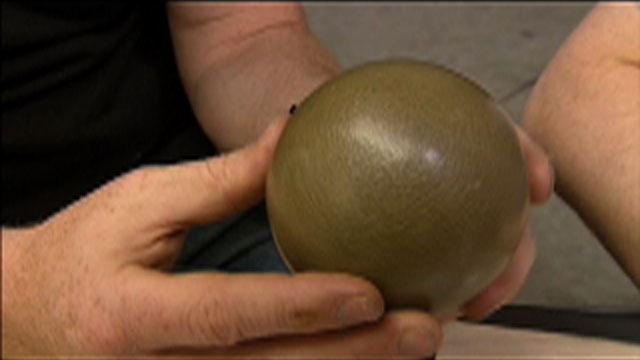I wanted to finish the Know Your Audience article today, but the more I looked at it the less focused it got. I found myself slipping down the rathole of making a big list, and that level of detail crossed the line from informative to pedantic. So I'm punting. I'll rework that article and publish it later.
 |
| Ettins: the extreme case. Granted, "minds" may be over-generous. |
Look! Editing in action! Let's look a little closer...
Two Minds
Two modes of thought guide my editing process. First, the quick-twitch, left-brain, Type A mind picks out typos, poor word choices, and other issues that I can fix in 20 seconds or less. This mode picks through a piece sentence by sentence and looks at the short-term tactical picture. I've gotten to the point where I can usually do some of this editing while I write, which slows me down but produces a cleaner first draft.
The larger part of editing uses the slow-twitch, right-brain, Type B, strategic mind. This mode figures out the structural issues and ideas that underlie a piece of writing, then (more importantly) articulates the problem and suggests ways to fix it. It picks out the good ideas and recommends cutting the ideas that don't support the piece's main focus. This process requires time to digest the entire piece and reflect, so this mind will wake you up at 2AM with a breakthrough on how to approach a sticky section of text.
My strategic mind told me the audience article had started to suck.
My tactical mind would have been up all night, happily fixing things.
I walked away from it and wrote this instead.
It takes both minds to edit effectively. Working with one mind exclusively will get you either a super proofreader or a back-seat developer who has a hard time polishing. Both of those have their merits, but combining both approaches in a single editor will get you more useful feedback on your piece. Fixing things in one mode can resolve issues in the other. For instance, if the strategic mind reframes the piece's tone from a dry history book to more of an adventure story, that change removes the need for constantly using passive verbs which drove the tactical mind to drink.
Why think about this?
Good writing needs balance. You can have a brilliant idea, but few people will read it if your typo-riddled wishy-washy text distracts them too much. Using precise words will get your point across, but if the point of your article boils down to "Hitting monsters more often requires rolling dice well," how many of your readers will comment to strenuously wish for those five minutes of their life back?
 |
| Just ask the Mythbusters. |
The Road to Mastery
How can you develop each of these traits? Practice. The only substitute for experience is experience. You can pick apart game rules by reading them, but until you see how they work by playing the game you don't know how they all fit together. The same holds for writing and editing.
If you want to write, start writing. If you want to edit, edit something. Yes, you'll suck at first, but accept that fact and learn as much as you can from your failures. This is how you bridge the creative gap from not doing anything because you're afraid of sucking to mastering your craft.
For those of you who haven't heard Ira Glass talk about the creative gap...
Is there more to learn? Always.
Mastery does not mean you have nothing left to learn.
Mastery means you can finally start learning things nobody knows.
The really interesting stuff. Groundbreaking things.
You will always have more to learn.

No comments:
Post a Comment